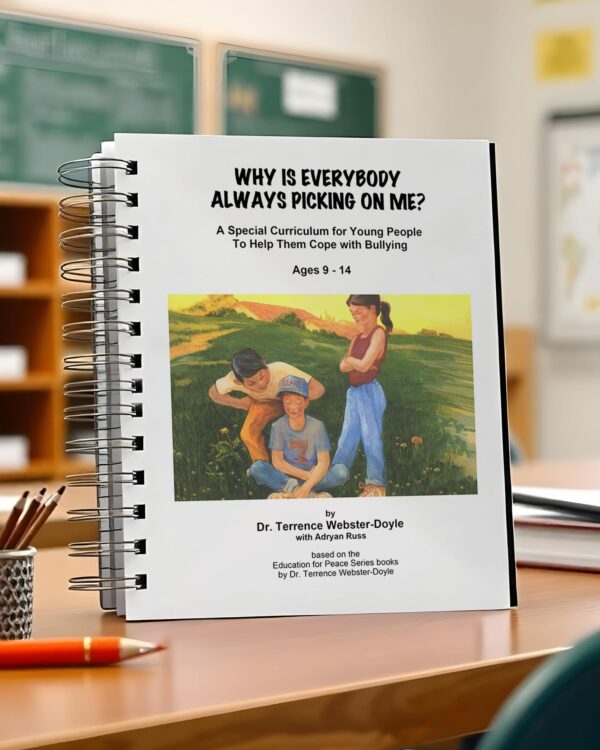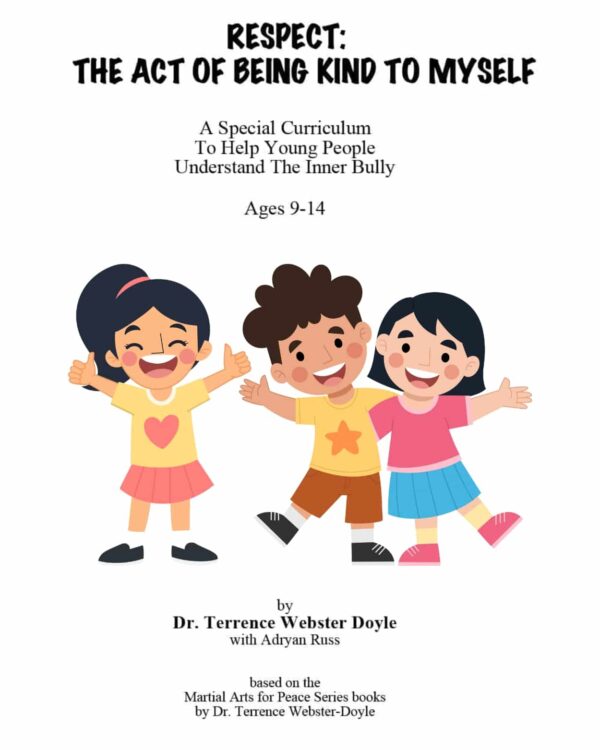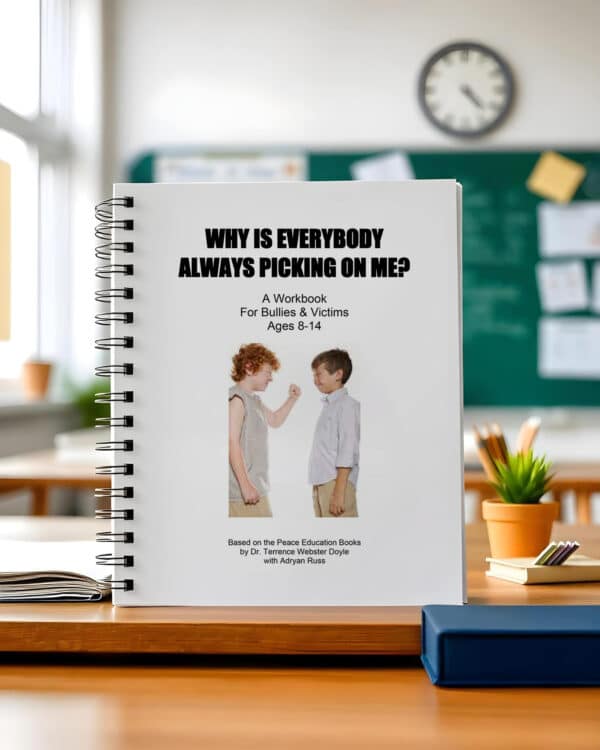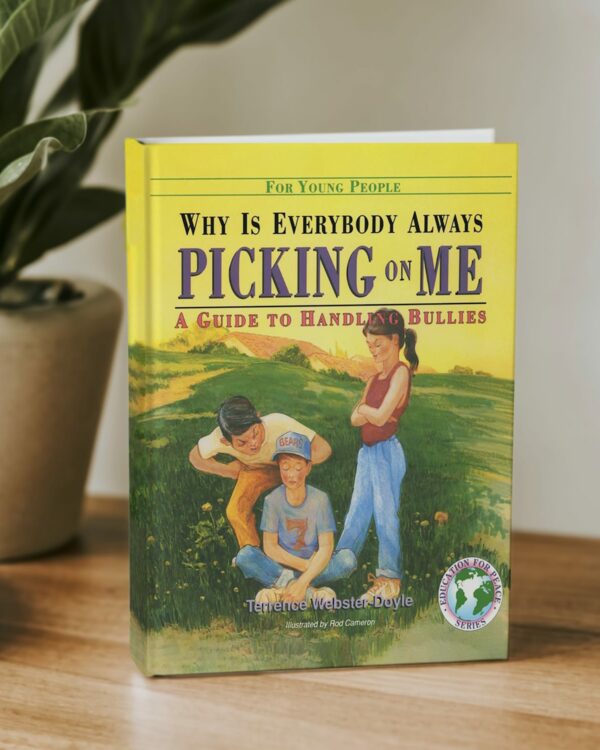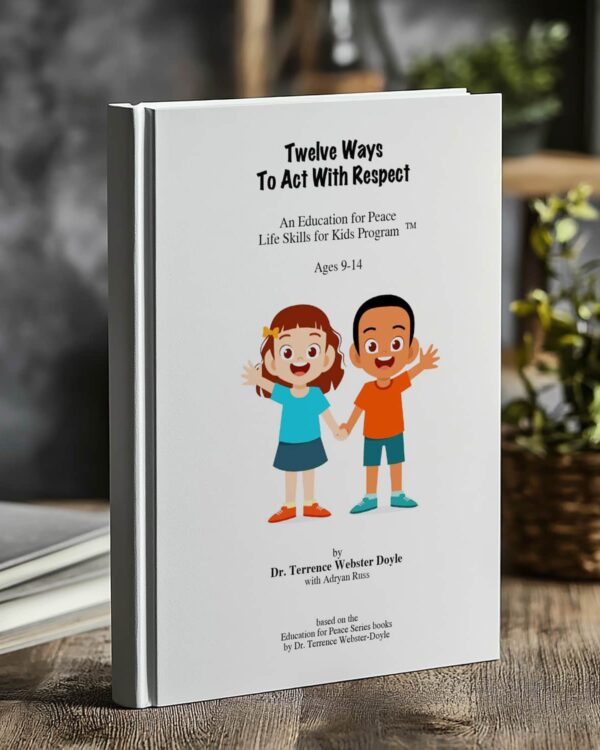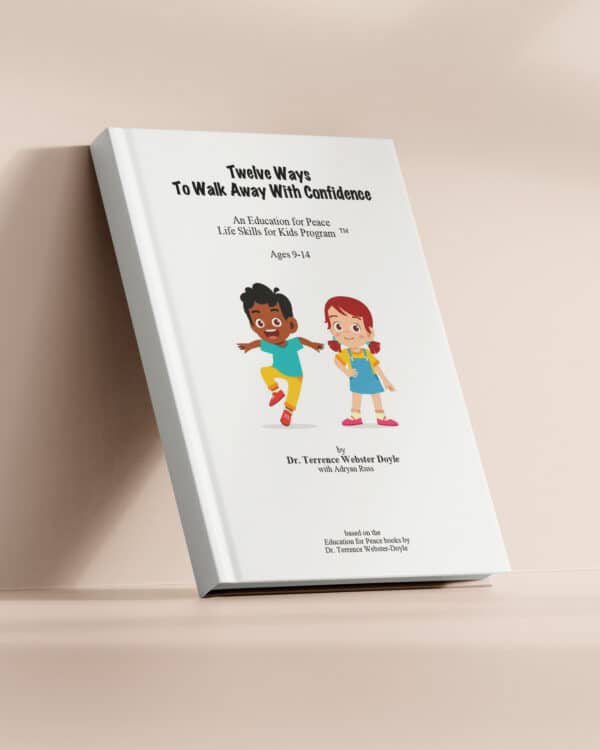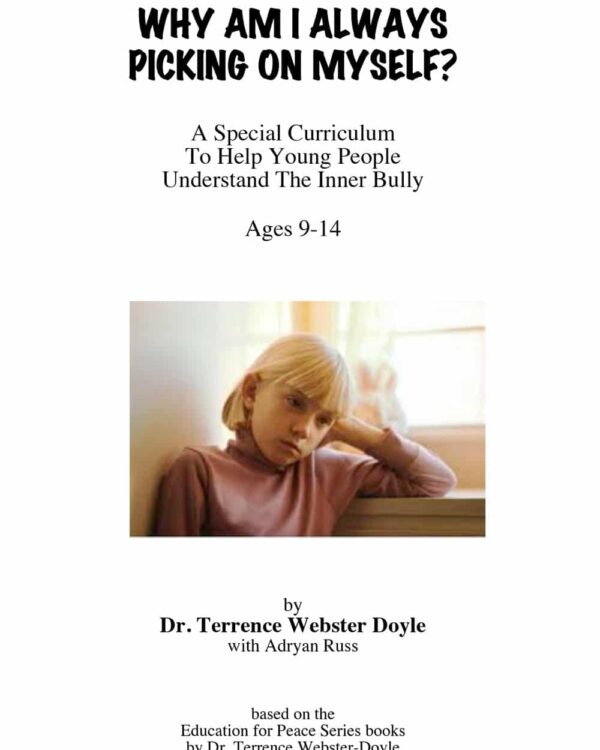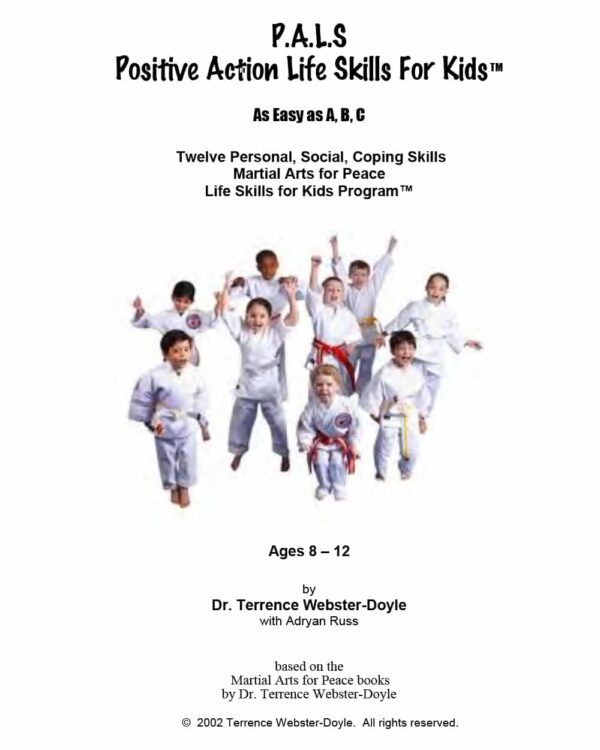Dealing with Toxic & Unhealthy Friendships as a Teen

Navigating friendships as a teenager can feel overwhelming. It’s a time of self-discovery where you’re figuring out who you are, who your friends are, and how to build meaningful connections. While many friendships bring joy and support, one of the toughest challenges is recognizing when you’re dealing with unhealthy friendships.
These relationships can leave you feeling drained, anxious, or unsupported and make it hard to focus on the things that truly matter. Learning to identify these relationships is an important step toward building a supportive circle of friends who lift you up rather than hold you back.

The Problem with Calling People ‘Toxic’
Before we dive in, let’s address the term “toxic people” because the words we use matter.
The phrase “toxic people” gets thrown around often, but it oversimplifies a complex issue. It’s much like labeling bullies as “bad kids”, which is a term that dehumanizes them and zeroes in on their actions rather than exploring the reasons behind their behavior or their potential to change.
When someone acts harmfully, whether it’s a bully or a friend displaying so-called “toxic” traits, it’s often a sign they’re struggling with their own challenges. They might be reacting to things they don’t know how to cope with. Labeling people as “toxic” or “bad” dismisses them and takes away their chance to grow.
Instead of asking whether someone is toxic, we should focus on how their behavior affects us and our relationships. This perspective helps us prioritize our own well-being while still showing empathy for others.
Today, we’re not here to talk about “toxic people.” Our focus is on toxic friendships, specifically, the dynamics and behaviors that make a friendship unhealthy.

The Importance of Friendship
Friendships play a powerful role in shaping your life, especially during your teenage years when you’re figuring out who you are and how you fit into the world. The people you surround yourself with can influence your confidence, choices, and even how you manage stress. They also help you learn how to form and maintain relationships later in life.
Supportive, uplifting friendships help you feel valued, build trust, and provide a sense of connection. These positive relationships teach you how to communicate and resolve conflicts which are skills you’ll carry into future friendships, romantic relationships, and even professional connections.
However, it’s important to acknowledge that not all friendships are positive or healthy.
Some relationships might leave you feeling hurt and being able to recognize these patterns can be just as valuable as learning from healthy friendships. Knowing what doesn’t work helps you set boundaries and understand what you want in future relationships.
It’s okay to step away from friendships that don’t serve your well-being. Letting go of an unhealthy friendship doesn’t make you a bad person, it shows that you prioritize your happiness and emotional health.
By putting yourself first, you create space for healthier, more fulfilling relationships built on mutual respect and joy. These experiences will shape how you approach connections throughout your life.

The Short & Long-Term Effects of Staying in an Unhealthy Friendship
Being in an unhealthy friendship can harm your emotional well-being both now and in the long run, much like the effects of bullying.
Friendships are meant to be supportive and uplifting, but when they’re not, they can chip away at your self-esteem, leave you feeling isolated, and lead to unhealthy patterns that are difficult to break.
Short-Term Effects
In the short term, being in an unhealthy friendship can leave you feeling drained or anxious. If your friend criticizes you, manipulates you, or ignores your feelings, you might start doubting yourself.
You could find yourself constantly trying to keep them happy and worrying about their reactions or avoiding conflict by staying silent. This can feel similar to being bullied where someone’s actions leave you feeling small or powerless.
Long-Term Effects
Staying in an unhealthy friendship doesn’t just affect you now, it can also influence how you handle relationships for years to come. The patterns you experience in these early friendships often shape what you expect and accept from others later in life.
If you’ve gotten used to being in a one-sided or harmful friendship, you might unknowingly bring those habits into adult relationships, including with a partner or spouse.

What’s the Difference Between Unhealthy and Healthy Friendships?
At first glance, it might feel hard to tell the difference between a healthy friendship and one that isn’t working. Some friendships start off great but change over time, while others might have red flags from the beginning.
By learning to identify the signs of healthy and unhealthy friendships, you can take steps to protect your emotional well-being and create relationships that add value to your life.
Let’s dive deeper into what sets these friendships apart and why it matters.
Healthy Friendships Are Balanced
In a healthy friendship, both people contribute equally to the relationship. You support your friend through the good and the bad, and they do the same for you. There’s a mutual understanding that each of you will put in the effort to keep the friendship strong.
On the other hand, an unhealthy friendship often feels one-sided. One person may find themselves constantly giving, offering emotional support, making plans, or sacrificing their own needs, while the other takes without contributing in return.
Sometimes, it might even feel like your friend only shows up when things are going well. Over time, this imbalance can leave the giver feeling exhausted, undervalued, and unappreciated.
Healthy Friendships Have Boundaries
Healthy friendships respect personal space, time, and individuality. You and your friend understand that each of you has your own interests and commitments. You don’t feel pressured to spend all your time together or agree on everything. Instead, you trust each other enough to say “no” when needed and you’re okay with giving each other room to grow.
Unhealthy friendships, however, often lack boundaries. Your friend might demand too much of your time or make you feel guilty for wanting space. They might dismiss your needs or expect you to always put their priorities above your own.
Healthy Friendships Are Stable
A healthy friendship is like a calm, steady river. It flows smoothly and makes you feel at peace. Conflicts are resolved calmly and even when disagreements arise, they don’t threaten the foundation of your relationship. Stability means you don’t have to walk on eggshells or worry about constant drama.
Unhealthy friendships, on the other hand, can feel like a stormy sea. One moment everything seems fine, and the next, there’s a blow-up or a misunderstanding that leaves you feeling hurt or confused. This emotional rollercoaster can be exhausting and make you question where you stand with your friend.
Healthy Friendships Are Accepting
In a healthy friendship, you can be your true self without fear of judgment. Your friend appreciates you for who you are, quirks and all. You don’t feel pressured to change your personality, interests, or values to fit in. Instead, you feel encouraged to be your best self and your friend celebrates your individuality.
Unhealthy friendships, however, can make you feel like you’re not good enough as you are. Your friend might criticize you, pressure you to conform, or make subtle comments that leave you doubting yourself. This lack of acceptance can chip away at your self-esteem and make the friendship feel more like a performance than a genuine connection.
Social Emotional Resources
How Unhealthy Friendships Contribute to Bullying
Unhealthy friendships can have a big impact on your behavior and emotional health. They might even push you toward bullying or leave you feeling like a victim.
Unhealthy Friendships Can Make You Feel Like a Bully
Unhealthy friendships often come with clear power imbalances where one person holds more control over the dynamic than the other. For example, your friend might pressure you to participate in mean-spirited jokes, spread gossip, or exclude others.
In trying to maintain the friendship or avoid conflict, you may find yourself going along with these behaviors even if they don’t align with your values. Without realizing it, you might start engaging in bullying behavior as a way to fit in or avoid becoming the next target of criticism or exclusion.
Being in this kind of situation can leave you feeling stuck and unsure of how to act. You might worry that standing up to your friend could damage your relationship or leave you feeling alone and unsupported. The fear of being isolated often makes it harder to make choices that align with your sense of right and wrong.
However, it’s important to remember that bullying, whether it’s physical, verbal, or emotional, is never an acceptable way to handle conflict or protect yourself. Staying silent or going along with harmful behavior might feel like the safer option in the moment, but it only allows the unhealthy dynamic to continue.
How They Can Make You Feel Like a Victim
Unhealthy friendships can make you feel like you’re being bullied. When a friend constantly criticizes you, dismisses your feelings, or tries to control your decisions, it can create a sense of helplessness.
You might feel like you can never do anything right or that your opinions and needs don’t matter. If your friend spreads rumors or talks behind your back, the betrayal can be especially painful and leave you feeling isolated or even questioning who you can trust.
Over time, these negative behaviors can take a toll on your self-esteem. You might start to internalize the criticism and believe there’s something wrong with you. This can lead to self-doubt which makes it harder to stand up for yourself or recognize when relationships are becoming unhealthy.
These dynamics can also make you feel stuck, especially if you’ve invested a lot into the friendship. You might worry about losing the connection entirely or fear the social fallout of walking away. This feeling of being trapped can intensify the emotional impact and make it even harder to take steps toward healthier relationships.
Both dynamics of unhealthy friendships, whether you’re being pressured into behaviors that don’t align with your values or made to feel powerless and small, are harmful. By understanding how these dynamics affect you, you can begin to set boundaries, seek support, and make choices that prioritize your well-being.

How Self-Respect and Confidence Help You Recognize Unhealthy Friendships
Developing self-respect and self-confidence doesn’t just help you recognize toxic dynamics, it gives you the strength to step away.
Self-confidence helps you trust your instincts and decisions. When you’re confident in who you are, you don’t feel as pressured to stay in friendships that don’t serve you. You’re less likely to fear judgment or loneliness because you know your value isn’t defined by whether someone likes you or not.
Self-respect means understanding your worth and setting boundaries that protect your emotional and mental well-being. When you respect yourself, you’re less likely to tolerate behaviors that make you feel undervalued. You recognize when a friend crosses the line and you’re more prepared to address it or walk away if needed.
Personal growth helps you build stronger friendships and a deeper connection with yourself. The more you respect and value who you are, the more you’ll attract people who treat you the same way.

How Friendships Become Unhealthy
Friendships can turn unhealthy for a variety of reasons and the changes often happen gradually which makes them harder to recognize. What starts as a strong connection might shift over time due to evolving circumstances or external pressures.
When you notice a friendship isn’t healthy, take a step back and think about how it’s affecting your well-being. Can things improve with honest conversations and effort? Or have the patterns caused too much harm to fix?
Recognizing these dynamics allows you to make choices that protect your emotional health while staying compassionate.
Growing Apart
As people grow, their priorities, interests, and values can change. This natural growth can sometimes create distance between friends.
The things that once connected you might not feel as meaningful now or maybe your lives are moving in completely different directions. That shift can bring misunderstandings, hurt feelings, or a sense of drifting apart. Sometimes, a friend might even behave in unhealthy ways to hold on to the friendship.
Unhealthy Habits
Sometimes, friends develop behaviors that unintentionally hurt the relationship. For example, a friend might become overly critical, start relying on you too much for emotional support, or take your kindness for granted.
These habits can create tension or imbalance and make the friendship feel less enjoyable and more like a burden.
External Stress
Outside stressors can also have a big impact on friendships. Challenges like school pressure, family issues, or personal struggles can spill over into how a person interacts with their friends.
For example, a friend who’s dealing with stress might become irritable or overly dependent. While these behaviors don’t necessarily define the person, they can strain the friendship and make it harder to maintain a positive connection.
Misaligned Expectations
Another common reason friendships turn unhealthy is misaligned expectations. If one person expects constant availability or feels entitled to more than the other can give, it can create frustration and disappointment on both sides.
Clear communication about what you both need and want from the friendship is essential to avoid these misunderstandings.

What to Do If You’re in an Unhealthy Friendship
Realizing that a friendship has become unhealthy can be a difficult and emotional experience. Friendships often hold a special place in our lives and letting go or making changes can feel overwhelming.
However, taking steps to address the situation is essential for your emotional well-being. Here’s a deeper look at what you can do:
Acknowledge the Problem
The first step is recognizing and admitting that something isn’t right. Pay attention to how the friendship makes you feel. Do you often leave interactions feeling drained or undervalued?
Reflect on the behaviors or dynamics that might be contributing to these feelings. Is there a lack of respect, constant criticism, or manipulation?
Acknowledging the problem can be tough because it means facing the reality that the friendship may not be as healthy as you hoped. However, this self-awareness is crucial for moving forward.
Set Boundaries
Once you’ve identified the issues, it’s important to set boundaries. Boundaries are like invisible lines that protect your emotional space and let others know what’s acceptable. Be clear and honest with your friend about what you need.
For example, you might say:
- “I need more space to focus on my own priorities right now.”
- “It’s important to me that our conversations are supportive, not critical.”
- “I can’t always be available, but I value our friendship and want to make time when I can.”
Setting boundaries isn’t meant to punish your friend, it’s a way to protect your well-being and build a healthier dynamic. When a friend respects those boundaries, it’s a good sign. But if they ignore or push back against them, it could point to a bigger issue.
Decide If It’s Worth Saving
Not every friendship can or should be saved. Some relationships reach a point where the harm outweighs the benefits and continuing them only prolongs the emotional toll. Ask yourself these questions:
- Has your friend shown willingness to change or address the issues?
- Do you feel valued and respected in the friendship?
- Does the friendship bring more positivity or negativity into your life?
If the toxic behaviors persist despite your efforts to communicate and set boundaries, it might be time to consider stepping away. Ending a friendship can be painful, but it’s sometimes the healthiest option for both of you.
Lean on Other Supports
Navigating an unhealthy friendship can feel isolating, but you don’t have to face it alone. Reach out to a trusted adult, sibling, or friend to share how you’re feeling. They can provide perspective and emotional support as you figure out what to do.
Talking things through with someone outside the situation can also help you feel more confident in your decisions. They might notice patterns or offer insights you hadn’t considered.
Take Care of Yourself
No matter what you decide to do, prioritize your own well-being. Ending or addressing an unhealthy friendship can be emotionally draining, so it’s important to focus on activities and relationships that make you feel good.
Spend time with friends who uplift and support you, pursue hobbies that bring you joy, and practice self-care to recharge emotionally.
Be Patient With the Process
Changing or ending a friendship doesn’t happen overnight. It’s a process that might involve tough conversations and moments of doubt. Give yourself grace as you navigate these changes. Remember, prioritizing your emotional health isn’t selfish.

Using Similar Skills to Manage Bullies and Unhealthy Friendships
Dealing with unhealthy friendships often requires many of the same skills you’d use to manage bullies. In both cases, setting boundaries, standing up for yourself, and knowing when to walk away are essential.
These skills empower you to protect your well-being and regain control in difficult situations.
Skills That Overlap
- Recognizing Problematic Behavior: Whether it’s a bully or an unhealthy friend, the first step is identifying behaviors that hurt you. These might include manipulation, constant criticism, or disrespect for your boundaries.
- Asserting Boundaries: Once you recognize harmful behavior, it’s important to set clear boundaries. Let the other person know what you’re comfortable with and what you won’t tolerate.
- Walking Away When Needed: Sometimes, the healthiest choice is stepping away. Knowing how to leave with confidence, without feeling guilty or second-guessing yourself, is a skill that applies to both bullying and unhealthy friendships.
Our 12 Ways to Walk Away with Confidence curriculum is designed to help you navigate these situations. It provides practical tips for stepping away from encounters that no longer serve you, all while maintaining your self-respect and composure.
